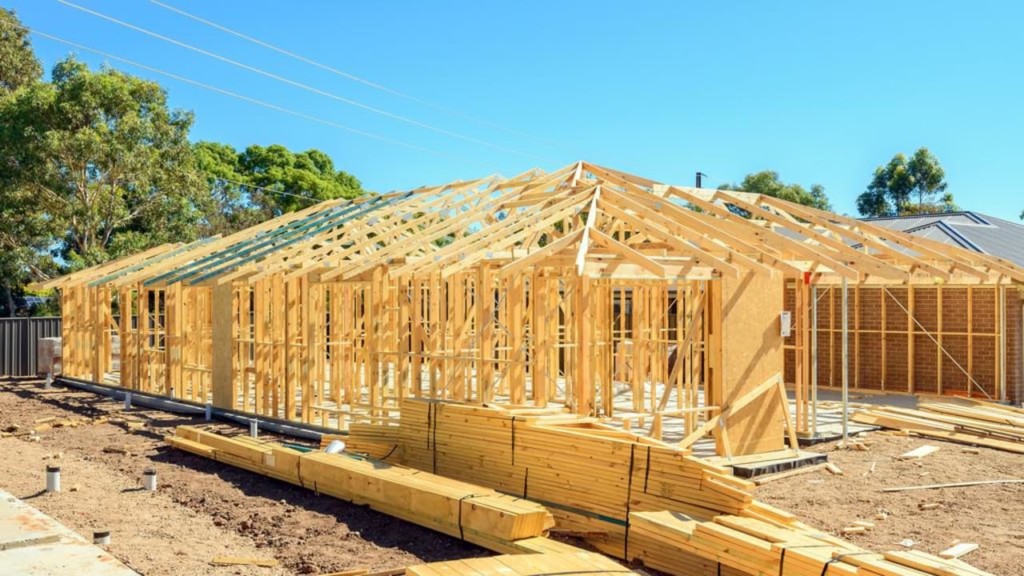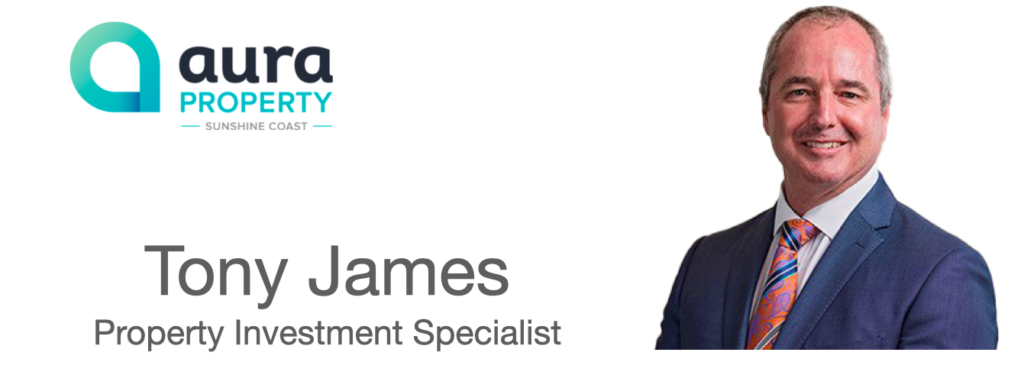Investment Property Let us do the leg work for you
If you’re considering purchasing a property, you may have questions regarding various aspects. Is property the right choice for your financial goals? How do you find the right property and the best areas to invest in?
What financing options are available, and what strategies suit you best? These are crucial considerations that we can assist you with.
Aura Property & National Building Solutions have been helping for more than 20 Years!

We Source Land
Finding land is our specialty, we work in the local market and get priority with land developers.
House Package
For 20 years we've provided house and land package and turn key solutions for more than 1000 families.
Property Management
We personally and professionally manage your investment and source tenants and manage your investment property.
whats the next step for you? - are you starting or growing your property port folio?
Let us help you with the journey.
reach out to tony and he will connect the dots for you

Finding the best location
The needle in the hay stack can be getting access to vacant land. At Aura Property we get priority access for our clients. We will provide you with a hand picked location ahead of the general market. You can have peace of mind that your selection will be in growth locations.
We work with local builders
Selecting and dealing with builders can often be time consuming. We work with reputable and local builders to cut through the maze of builders to provide you with quality and trusted builders to complete the build of your new investment.


Specialist Property Management
As an Investment Property Owner you shouldn’t have any concerns and expect that your management team will not only take care of business but give you peace of mind.
We have extensive experience in property management. Our team of experts are passionate about delivering an exceptional client experience by tailoring our services to meet the specific needs of our clients.
Introducing Tony
Tony James is our Investment Property Strategist at The Aura Property Group. With a background in Property Investing, new home construction, land sales, and mortgage broking, Tony brings a wealth of experience to help people achieve financial freedom through property investment. He is passionate about, and personally invested in property, and understands how vital and easy it is to take early action to achieve financial freedom through investing.
The Aura Property Group has been a trusted presence in the Sunshine Coast Property Market for 30 years. Tony will suggest personalized solutions tailored to meet your unique requirements.
Tony is available for free, personal consultations, to discuss your financial goals and explore the options available to you to help you achieve those goals. The Aura Group provides support with finance approvals, conveyancing, tax minimisation ideas, and property management, ensuring a seamless experience for our clients.
About Property investing.
Welcome to The Aura Property Group; your gateway to easy and successful property investing in one of Australia’s most beautiful and thriving regions.
For many reasons, now is the perfect time to embark on, or continue your property investment journey and we are here to aid and guide you every step of the way.
Our team of experienced experts is dedicated to helping you achieve financial freedom and create a prosperous future for yourself and your loved ones.
Property investing in Australia has long been recognized as a secure and effective strategy for wealth accumulation. By strategically engaging the market, you can leverage the power of real estate to build equity and wealth, generate passive income, and reduce your tax obligations. Our tailored solutions will empower you to take advantage of these opportunities and pave the way for a rewarding life and retirement.
Some interesting investing Stats:
- 51% of Australian Adults do some form of investing outside of their superannuation. It might be in Bonds, Stocks, Cryptocurrency or Property investing.
- According to the ATO, 8.7% of the Australian Adults can classify themselves as property investors and own 1 or more investment properties.
- A quarter of Australia’s property investments held by 1% of taxpayers.
- Tax office figures also show a clear majority of those investors are over the age of 50.
- The data shows just how concentrated home ownership currently is, and that it is much easier to increase investment portfolios than enter the housing market.
Property investors are by far the largest beneficiaries of rising prices, while making it harder for those who do not have access to generational wealth to enter the market.
We are increasingly seeing this kind of wealth polarisation, particularly in the big cities where those price pressures are more intense.
Right now, people have a choice. Become one of the 8.7% of the population that can invest in property and increase their wealth, or miss the boat and see prices rise beyond their capability and never get to make that choice.
At The Aura Property Group, we understand that navigating the world of property investment can seem overwhelming. That’s why we make it our mission to simplify the process for you. Our comprehensive advice, proven strategies, and personalized guidance will provide you with the confidence and knowledge you need to make informed decisions.
By partnering with us, you’ll gain access to exclusive property opportunities on the Sunshine Coast that are not readily available through traditional channels. We have a deep understanding of the local market and can match you with properties that align with your investment goals and aspirations.
Take the first step towards your financial independence today by clicking the link below. Our contact form awaits your details, and our dedicated team is eager to connect with you, understand your unique circumstances, and develop a customized plan to propel you towards success.
Don’t miss out on this opportune moment to secure your future through property investing. Let us be your trusted partner on this exciting journey, and together, we’ll unlock the full potential of your investment endeavours.
Click here to take the leap towards financial freedom and begin your property investing journey with The Aura Property Group.
About investing.
There’s no getting around the fact, that in our financial system, we use money, to get what we want and need. If you want a comfortable life, then you need to get control of money, and not let Money control you.
Money controls you when you need to make a large or continuous effort to continue to acquire it.
However, you are in control of money, when it comes to you continuously, with little or no effort.
When we start out, money controls us all, and we must work for money. but over time, if we are smart in the way we handle money, we can acquire enough of it, to have it start to work for us. This is called investing.
Investing can be using saved money to start a business, or manufacturing some goods or it can be providing a service. The trouble is that if you stop your business or making those goods, or providing that service, no more money comes to you.
Property investors have the advantage of being able to produce as little as one single item, that provides a service to people, that repays their investment many times over, for as long as they choose. Not only can it be relied upon for that return, but if done correctly, it requires little in the way of ongoing effort or cost contributions from the owner.
Because it’s relied upon by so many people to create wealth, government protections and assistances have been put in place, which make property investing cheaper and easier than it otherwise would be.
Let’s look at a simplified, real world example of investing in property to make you richer and your life easier.
In this market, a nicely built 4 bedroom new home including land, can be built for something under $700,000.
To buy this $700,000 property, the investor will need to come up with a deposit of around 10% or $70,000.
Costs such as stamp duty and conveyancing are added to the loan, so the loan value might be $700,000 – $70,000 deposit + $30,000 fees = $660,000.
At todays interest rates, the repayments would be about $800 a week. Homes are renting for about $650 a week, this leaves a short fall of about $200 a week, or about $10,000 a year, considering costs and management fees. Because you are doing this as an investment and the home is a newly built home, the government allows you to treat the costs you incur, as a reduction in your taxable income. If you’re earning the average wage of about $80,000, then you are paying about 30% of that in taxes; around $24,000.
That means that whatever you take off your taxable income, will mean that you will save about 30% of that in taxes. Your interest charges and depreciation on the home and the fixtures in the home will mean that you would cut your taxable income roughly in half and so you’ll pay half the tax you did before. You’ll end up getting half your tax back, which would mean about a $12,000 tax return. So while you paid out $10,000 to keep the property, you’ll get a tax return of more than that amount. It will be as though you received a net $50 a week to own that property.
As mentioned, the price of property rises about 5% a year on average, so your $700,000 property will have gained about $35,000 in value over the year, and so you will in effect, be $37,000 better off by buying the property and after 2 years, will on paper, have gained back the $70,000 you initially invested. You’ll be ready to buy your next investment.
The great thing is, that your property is likely to double in value over the period of about 10 years. That $700,000 property is now worth $1,400,000 and if you sold it, you’d be able to use the profits to pay off your existing home loan or retire a little earlier or better. Investment property ownership gives you options you wouldn’t otherwise have.
what to consider
is 2023 - 2024 the year?
The real estate market on the Sunshine Coast in Australia has experienced a significant shift in favor of buyers in 2023. With a higher number of homes available for sale, slower sales, falling prices, and a recovering economy, it’s clear that this year presents a unique opportunity for those looking to purchase property. In this blog post, we will delve into the current market conditions, expert analysis, and the opinions of Australians, all pointing towards 2023 being a buyer’s market. If you’ve been considering entering the property market, now is the time to take action.
Industry experts have analyzed the real estate market in Australia and have found compelling evidence that 2023 is undeniably favoring buyers. Factors such as rising interest rates, falling house prices over the past year, and the overall economic recession have contributed to this buyer’s market phenomenon. However, it’s important to note that house prices are no longer declining, indicating a shift in the market.
A recent research commissioned by Aus Property Professionals sheds light on Australians’ sentiments regarding the current property market. Surprisingly, approximately 65% of the general population agrees that 2023 is not the ideal time to enter the market, citing rising interest rates and falling house prices as cautionary factors. However, 35% of Australians believe that 2023 is the perfect time to buy a house, emphasizing the buyer’s market and the ample opportunities available to financially prepared individuals.
Renowned author and property expert, Lloyd Edge, acknowledges the challenges faced by the Australian property market in 2023 due to consecutive interest rate rises. Nevertheless, he emphasizes that these circumstances provide savvy investors with an excellent chance to make strategic purchases. Mr. Edge affirms that the current market favors buyers, presenting more options and negotiation power when it comes to pricing. It’s an opportune time for those who have been patiently waiting for the right moment to enter the market.
Motivated sellers, who are willing to sell for less than market value due to financial difficulties or urgent circumstances, contribute to the current buyer’s market. If you’re considering purchasing a property, you may have questions regarding various aspects. Is property the right choice for your financial goals? How do you find the right property and the best areas to invest in? What financing options are available, and what strategies suit you best? These are crucial considerations that we can assist you with.
The real estate market is dynamic and can change rapidly. Staying informed, actively searching for opportunities, and adapting to new circumstances is key. With over 700,000 people projected to move to Australia in the next 18 months, the end of COVID-19 restrictions, the upcoming Olympics in Brisbane, and the shortage of homes leading to rising rents, 2023 is undoubtedly an opportune time to buy. However, the current surplus inventory resulting from mortgage stress won’t last long, eventually leading to a sellers market once again.
This year has brought about a buyer’s market in real estate on the Sunshine Coast. The confluence of favorable market conditions, expert insights, and the opinions of Australians all point towards this being an ideal time to make your move. Whether you’re seeking financial security, freedom, or the best tax advantages, we’re here to help.
Everyone has an opinion on where the next hotspot is. By doing your own research, you will be armed with the right knowledge to make the best decision for your situation.
Research the underlying fundamentals of the state you are buying in:
- economic growth (gross domestic product)
- unemployment rates
- household wealth
- consumer confidence
- population growth
- established housing market median house prices and average monthly clearance rates
- new housing starts
- major infrastructure projects.
- general area:
- infrastructure investment
- proportion of houses versus apartments
- change in demographics and lifestyles
- income growth
- local council workings, strategic plan.
- suburb, street and price point:
- rental yield
- where the renters live
- proximity to amenities like shops, transport, major arterials, medical centres and entertainment
- crime statistics
- development applications (is there a high rise tower going in next door?)
- demographics of residents.
- Be pet friendly. This may yield you up to $50 per week higher rent depending on the area and demographic population of the estate.
- Check out the current zoning and future potential zoning and upside for development.
- Look for an investment with potential up-side. For example, what extra rent will you achieve with a minor renovation or adding another room to rent out?
- Dual dwellings or duplexes that are worth what you paid for them on completion. These investments should provide a minimum of 6-7% plus return and in some cases you can even achieve 8% or higher depending on the season and how cheaply you can buy the land.
- Being close to everything you need such as quality schools, shopping centre, hotel and sporting clubs. Ac- cess to the highway and/or long-term work opportunities.
- If possible, choose a quiet cul-de-sac street. Encourage your tenant to be a part of the community.
- In your design, keeping within your budget; kitchen with lots of bench space, overhead cupboards and main bedroom with walk-in robe and ensuite. Include air conditioning and fans.
- Consider looking for North facing land and a block that slopes to the road. 11. Avoid a steep driveway.
Be open to off the plan or existing second hand home. - Do your research and look for the percentage ratio of owner occupiers and investors within the estate. A mix of 70 to 80% owner occupiers over investors is preferable. You can work alongside a good agent to find out this information accurately.
- Ensure you double check the rental returns with an independent Real Estate Agent other than the one recommended by your sale agent.
Consider the following factors when choosing a property manager:
- Their experience in property management. Ask about their current portfolio and the
- Types of properties they manage
- Their approach to managing your property, for example, the frequency of inspections, and how they advertise for and choose the right tenant
- The property manager’s manner in dealing with people how they collect rent and pay accounts such as water and council rates
- What and how often they report to you, especially providing you with financial statements
- Whether they would appear in court on your behalf in any disputes with tenants the fees charged and what they include.
Hint: As soon as you settle on your investment property, arrange for an insurance policy to ensure you are covered should something happen to the property.
Landlord insurance will cover you for loss of rent, rent default and tenant theft, property damage, household contents and public liability. The policy is inexpensive to take out and no property investor should be without it.
Think before you begin
Financing an investment property is similar to financing the purchase of your own home, but there are key differences.
- A lender will look at the return on the investment and each lender will have different lending criteria in place, which will determine your level of borrowings.
- Some lenders, for example, will only take into account 70% of the rental income when assessing your serviceability for the loan, whereas others are more generous.
- Similarly, in assessing your debt-servicing ratio, different lenders make allowances for different criteria, each of which will impact on your ability to qualify for the finance. This could be the key difference in getting funds for your purchase
Make sure you get the right financial advice so that you don’t experience any roadblocks.
Types of loans
There are different types of loans and loan features available to investors, which can make accessing the necessary investment funds easier.
- If you want to invest to grow your wealth but don’t have the capital behind you to get started, then accessing the equity in your home can be a great solution. Equity is the difference between what your home is worth (your asset) minus what you owe on it (your debts and liabilities).
- Having the ability to switch between interest-only and principal and interest repayments is an advantage. An interest-only home loan allows you to pay only the interest over the term of the loan, which is typically five years. You will then begin to pay off the principal when the loan term ends. A principal and interest home loan is where the borrower pays the interest incurred monthly as well as a portion of the principal (the principal is the amount of money borrowed). This is especially handy when segmenting loans with tax deductible interest and those with non-deductible interest come tax time.
There comes a stage in your life when you’re in a comfortable financial position and it’s time to take the next step – use the equity in your family home to set you up for retirement.
If you want to invest to grow your wealth but don’t have the capital behind you to get started, then accessing the equity in your home can be a great solution.
Equity is one of those words in property investment that is bandied about by many yet understood by relatively few. For a homeowner, the definition of equity is simple:
It is the difference between what your home is worth (your asset) minus what you owe on it (your debts and liabilities).
You may have a trusted accountant or financial planner but still want to work alongside an expert that lives and breathes the property market. An expert that loves property investing and will only offer property options that they would consider investing in themselves.
We help you understand the risks, the market, the process and the joy in buying investment property.
The reality is, if you’ve paid off part of your mortgage you already have some equity, and therefore have a foundation from which to grow your wealth and invest further.
If you’ve been putting off that investment strategy until you’ve saved enough capital (deposit), unlocking your home equity provides access to your own money sooner. Depending on your financial circumstances, and the advice you receive from your financial advisor, you may be able to use your existing equity to create an investment portfolio.
How it works
To find out how much equity you have in your home, you will need to get a property valuation. Most lenders will allow you to borrow up to 80% of the value of your home. If you’d like to borrow more than this, then you may need to pay lenders’ mortgage insurance or a low deposit premium.
Whether you can borrow additional funds to access the equity in your home will depend on a number of factors, such as income, living expenses and how much you owe.
Using the equity in your home means the total amount you owe on your home loan will increase, which can result in higher monthly repayments. You should always seek professional advice to ensure that your current lifestyle is not compromised.
- The interest rate of a home equity loan is generally lower than personal or credit card loans so it’s financially savvy to consolidate all of your high-interest rate repayments into the one loan and save on interest.
- Purchasing an investment property can be an effective way to grow your wealth. You don’t have to wait and save for a deposit when you can use the equity in your current home to finance the new property. Residential investment properties are often a good option as they have the potential to provide investment security, capital growth and rental income.
- Many home equity loans have flexible features. For example, you have to pay the interest only each month and if you want, you can pay towards the principal also by paying extra in addition to the minimum repayment amount.
- You have access to the money when you need and can put it back whenever you want.
- There may be a redraw facility, so if you need extra cash, you can have access to it.
- If you make an extra payment in addition to your fixed payment amount each month, your loan term may shorten.
Negative Gearing
“Capital growth properties” as they are often referred, are generally a longer term investment strategy. The anticipation of high-level capital growth over time is appealing to investors who are willing to incur short term, tax deductable losses.
Negative gearing is generally achieved with investment properties situated in areas closer to capital cities, or even inner-city areas, where growth is achieved typically over a longer period of time.
Benefits
- Ability to claim tax deductions on losses incurred, which in turn reduces your overall taxable income.
- Long term capital growth expectations, at time of sale, may significantly compensate for the losses incurred during ownership of the property.
Disadvantages
- Rental income won’t cover your costs; therefore you will have to come up with monthly payments to cover the shortfall in expenses.
- Profit is only achieved if the investment increases in value by more than the ongoing cash losses.
- You have to pay Capital Gains Tax on capital growth at time of selling.
- If circumstances change and you need to sell sooner than expected, capital growth levels may not cover initial outlay and monthly losses.
Interestingly, Australia is one of only a few countries globally that allows investors to negative gear, thus claiming tax deductions for losses incurred on property investment.
Industry commentary debates the issue, with those in favour of negative gearing, stating it keeps the market buoyant because more buyers are likely to invest in property if they can reduce tax by offsetting losses incurred.
The flip side questions the impact negative gearing has on first home buyers. This debate believes vigorous investing makes it difficult for first time purchasers to compete in the market.
Now that you know what gearing is and how it impacts on property investment, you can make an informed decision about your own investment strategy.
And remember there is “no one size fits all” investment strategy. The best strategy is tailored specifically to your own circumstance, objectives and goals.
Let us help you with your investment property journey


